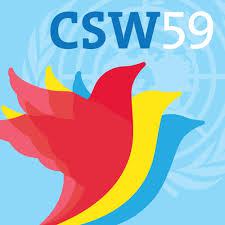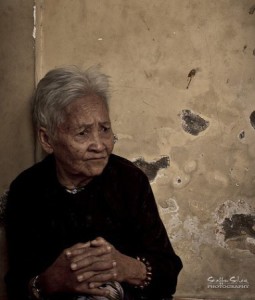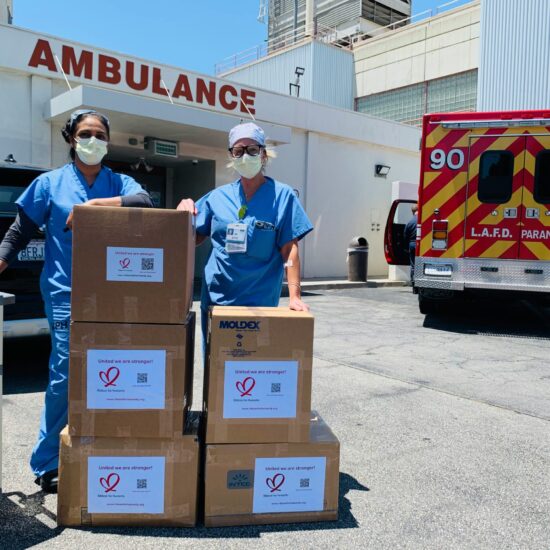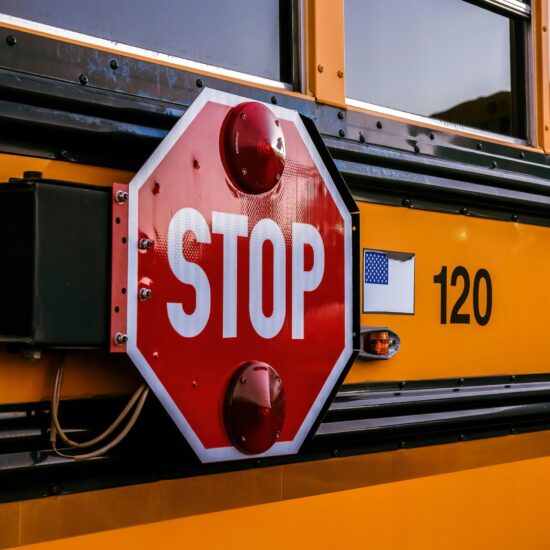
 The year 2015 marks a significant milestone – the 20th anniversary of the Fourth World Conference on Women and adoption of the 1995 Beijing Declaration and Platform for Action.
The year 2015 marks a significant milestone – the 20th anniversary of the Fourth World Conference on Women and adoption of the 1995 Beijing Declaration and Platform for Action.
This was the focus of the 59th session of the Commission on the Status of Women (CSW59). The annual two-week gathering at the United Nations Headquarters in New York wraps up today.
Despite some progress over the last two decades, the areas of concern identified in the Beijing Declaration are still relevant and urgent today. Violence against women, and in particular, violence against older women, remains an issue that stymies even the most ardent supporters of women’s rights.
At Older Women Count, Bringing Visibility to Violence against Older Women 20 years after Beijing, a standing-room only audience learned more about the need to include older women in discussions on gender-based violence and how countries are addressing the challenges.
Approximately 850 million people, or about one in 10, were over the age of 60 in 2012, according to Susan Markham, Senior Coordinator for Gender Equality and Women’s Empowerment, USAID. By 2030, that number will grow to 1.375 billion people age 60-plus; about 16 percent of the world’s population. Older women make up the majority of those over 60, and most live in developing countries.
“Women often outlive men in old age but starting from birth they often have less status, less education, less choice in childbearing, less access to formal employment and are less likely to inherit property,” Bunting said. Yet,“they are more likely to be widowed and to be harmed by traditional practices. Older women are also more likely to experience poverty, as well as social exclusion and many forms of violence.” Age, gender, caste and class are just a few of the many factors working against older women.
Correcting the gender imbalance includes helping women gain better access to education, healthcare, and giving them more of a voice within their communities, Markham said. “We must take older women into account as we work to end poverty and build strong, emergent democracies. It can’t happen without them.”
Kate Bunting, CEO of HelpAge International, a non-profit focusing on the rights of older adults worldwide, and sponsor of the panel said, “despite increasing evidence on how discrimination affects women in older age and the challenges they face, older women are almost entirely absent from the picture.”

credit: Staffan Scherz
She said most measurements of gender-violence — including domestic, sexual and emotional violence — only include women aged 15 to 49. Gaps in research and policy on violence in later life are representative of a host of broader issues surrounding lack of inclusion of age into gender concerns, according to HelpAge. Often, older women and protections for their rights fall through the cracks.
Her Excellency Maria Cristina Perceval, Permanent Representative of Argentina to the UN and forceful advocate for human rights, noted that over a billion women worldwide have been victims of violence in the past 20 years. “This is the real dimension of inequality.”
She reminded the audience that 33 years have elapsed since the UN convention went into force against all forms of discrimination against women, 20 years since the adoption of the Beijing Platform, and 13 years since the adoption of the Madrid international Action Plan on Aging. “These instruments contain concrete commitments to eradicate violence against women; in some cases specifying older women as one of the most vulnerable groups and to protect them from abuse, neglect and violence.”
Governments have an obligation to protect the rights of women, including older women, from any form of abuse and to investigate and prosecute those who commit these acts, including those which result from traditional practices and beliefs,” she added.
Violence against older adults primarily affects women, not just because women outlive men, but also because there is more violence directed against women, according to Kathy Greenlee, Assistant Secretary for Aging, US Department of Health and Human Services.
She recounted the story of one woman who fled an abusive husband, only to be swindled out of her life savings and isolated from family and community by the very caregivers she had hired to help her. “She talked about the loss of pride and trust in others, the impact of emotional abuse. And it was devastating.”
This woman, said Greenlee, was a U.S. veteran, who asked, “don’t I deserve better?”
Greenlee uses this story as a way to grapple with the significance of the work, in terms of both numbers and impact. “I believe that the abuse of older people – women and men – is simply an outrage against humanity,” she commented. “It is so disrespectful to all of us, as humans, to face this in old age.”
It’s easy to just see older women as a category, but they’re not, she added. “Older women are us.” It’s the women you see in the mirror, whether she’s with you today or arrives in 20 years. It’s us. It’s a phase of life that presents opportunity as well as vulnerability. In this regard, I consider it an outrage that it happens.”
Greenlee reiterated the need for older women to be part of the conversation about gender violence.
There’s a need for more data, and more innovative approaches to create resilience among survivors, she said. That requires the global community to talk about this seriously and come together to find common solutions. Those on the panel, and those in attendance are committed to making that happen before another 20 years passes.
The entire panel discussion is available on UN-TV (runs 1 hour, 15 minutes)
Podcast: Play in new window | Download (1.3MB)
Subscribe: RSS








Pingback: News & Resources Roundup- March 2015- NYCEAC / April 2, 2015
/